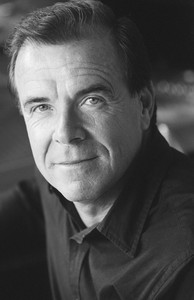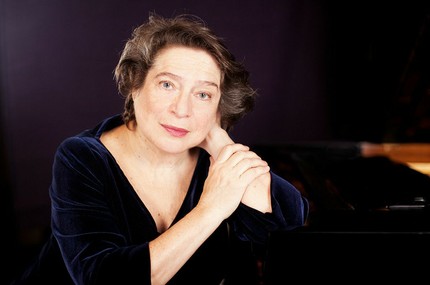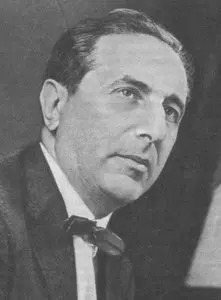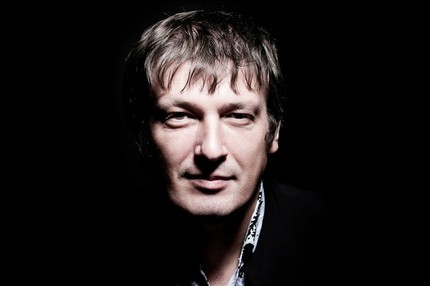
Misha Dichter |
Misha Poet

At each regular International Tchaikovsky Competition, artists appear who manage to win a special favor with the Moscow public. In 1966, one of these artists was the American Misha Dichter. The sympathy of the audience accompanied him from the very first appearance on the stage, perhaps even in advance: from the competition booklet, the listeners learned some details of Dichter’s short biography, which reminded them of the beginning of the path of another favorite of Muscovites, Van Cliburn.
… In February 1963, young Misha Dichter gave his first concert in the hall of the University of California at Los Angeles. “This debuted not just a good pianist, but a potentially great musician with a phenomenal talent,” wrote the Los Angeles Times, adding carefully, however, that “with regard to young performers, we should not get ahead of ourselves.” Gradually, Dichter’s fame grew – he gave concerts around the USA, continued to study in Los Angeles with Professor A. Tzerko, and also studied composition under the direction of L. Stein. Since 1964, Dichter has been a student at the Juilliard School, where Rosina Levina, Cliburn’s teacher, becomes his teacher. This circumstance was the most significant …
The young artist lived up to the expectations of Muscovites. He captivated the audience with his spontaneity, artistry, and magnificent virtuosity. The audience warmly applauded his heartfelt reading of Schubert’s Sonata in A major and his virtuoso performance of Stravinsky’s Petrushka, and sympathized with his failure in Beethoven’s Fifth Concerto, which was played somehow languidly, “in an undertone.” Dichter deservedly won the second prize. “His outstanding talent, integral and inspired, attracts the attention of the audience,” wrote the chairman of the jury E. Gilels. “He has great artistic sincerity, M. Dichter deeply feels the work being performed.” However, it was clear that his talent was still in its infancy.
After the success in Moscow, Dichter was in no hurry to exploit his competitive successes. He completed his studies with R. Levina and gradually began to increase the intensity of his concert activity. By the mid-70s, he had already traveled all over the world, firmly entrenched on concert stages as a high-class artist. Regularly – in 1969, 1971 and 1974 – he came to the USSR, as if with traditional laureate “reports”, and, to the credit of the pianist, it must be said, he always demonstrated steady creative growth. It should, however, be noted that over time, Dichter’s performances began to cause less unanimous enthusiasm than before. This is due to the character itself and the direction of its evolution, which, apparently, has not yet ended. The pianist’s playing becomes more perfect, his mastery more confident, his interpretations more complete in conception and execution; the beauty of sound and quivering poetry remained. But over the years, youthful freshness, sometimes almost naive immediacy, gave way to precise calculation, a rational beginning. For some, therefore, today’s Dichter is not as close as the former one. But still, the inner temperament inherent in the artist helps him breathe life into his own concepts and constructions, and as a result, the total number of his fans not only does not decrease, but also grows. They are also attracted by Dichter’s varied repertoire, consisting mainly of works by “traditional” authors – from Haydn and Mozart through the romantics of the XNUMXth century to Rachmaninoff and Debussy, Stravinsky and Gershwin. He recorded several monographic records – works by Beethoven, Schumann, Liszt.
The image of today’s Dichter is depicted by the following words of critic G. Tsypin: “Characterizing the art of our guest as a noticeable phenomenon in today’s foreign pianism, we first of all pay tribute to Dichter the musician, his, without exaggeration, rare natural talent. The pianist’s interpretative work at times reaches those pinnacles of artistic and psychological persuasiveness that are subject only to talent of the highest caliber. Let us add that the artist’s precious poetic insights — moments of the highest musical and performing truth — as a rule, fall on elegiac contemplative, spiritually focused, philosophically profound episodes and fragments. According to the warehouse of artistic nature, Dichter is a lyricist; internally balanced, correct and sustained in any emotional manifestations, he is not inclined to special performance effects, naked expression, violent emotional conflicts. The lamp of his creative inspiration usually burns with a calm, measuredly even – perhaps not blinding the audience, but not dim – light. This is how the pianist appeared on the competitive stage, this is how he is, in general terms, even today – with all the metamorphoses that have touched him after 1966.
The validity of this characterization is confirmed by the critics’ impressions of the artist’s concerts in Europe in the late 70s, and his new records. No matter what he plays – Beethoven’s “Pathetique” and “Moonlight”, Brahms’ concertos, Schubert’s “Wanderer” fantasy, Liszt’s Sonata in B minor – the listeners invariably see a subtle and intelligent musician of an intellectual rather than openly emotional plan – the same Misha Dichter, whom we know from numerous meetings, is an established artist whose appearance changes little over time.
Grigoriev L., Platek Ya., 1990





